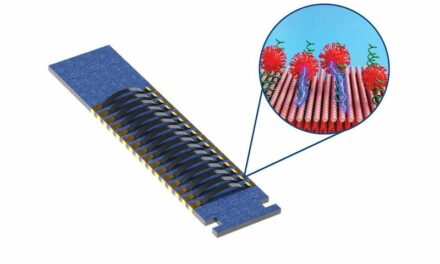Aalto Bio Reagents, Dublin, Ireland, offers a range of antigens for use in developing diagnostic assays for vector-borne diseases, including recombinant Borrelia antigens and tick-borne encephalitis (TBE) antigens.
According to the US Centers for Disease Control and Prevention, from 2004 to 2016 there was a three-fold increase in disease cases from infected mosquitos, ticks, and fleas in the United States (Figure 1). Because ticks are capable of harboring a number of pathogens simultaneously, there is an increasing need for assays that can detect the full spectrum of tick-borne agents.
For instance, Lyme disease is a multisystem disease caused by infections with the bacterium Borrelia. Transmission to humans is typically through the bite of an infected tick. Although human infection can occur throughout the year, most cases occur during early summer months, when the tick nymphal stage is most active.

Figure 1. Disease cases from infected mosquitos, ticks, and fleas have tripled in 13 years. Source: Centers for Disease Control and Prevention.
Clinical features and methods for accurate diagnosis of Lyme disease differ across continents owing to differences in the type of causative Borrelia species. The predominant causative species in North America is Borrelia burgdorferi sensu stricto. In Europe, at least three species may be responsible: Borrelia burgdorferi and, more commonly, Borrelia garinii or Borrelia afzelii. Aalto Bio offers a range of recombinant Borrelia antigens, including the immunogenic surface antigens OspC/OspA or DbpA, as well as VlsE and other proteins (p39, p41, p58, p83/100).
Tick-borne encephalitis (TBE) is the most common tick-borne central nervous system infection in Europe and Asia. It is caused by three subtypes of the TBE virus: European, Siberian, and Far-Eastern, with the last of these subtypes causing the most severe illness. Despite the availability of a vaccine against TBE, such infections have become a growing public health challenge. According to the European Center for Disease Prevention and Control, the number of human cases of TBE in all endemic regions of Europe has increased by almost 400% in the past 30 years.
Diagnosis of TBE is based on the detection of specific IgM or IgG antibodies in serum or cerebrospinal fluid, since these antibodies are detectable in practically every case at the time of hospitalization. Aalto Bio’s native TBE antigen (code BM 6154-b) is suitable for both IgG and IgM application and is being used in a number of commercially available CE marked assays.
For further information, visit Aalto Bio Reagents.





